
The Free Press

On today’s Front Page from The Free Press: Steven Pinker on Honestly; Modi tries to jail one of India’s most famous writers; the transgressive brilliance of Lana Del Rey’s ‘Ultraviolence’; Chuck Schumer’s cookout gaffe; and more.
But first, here’s Bari:
I couldn’t wait for today to arrive. Because today I get to tell you that The Free Press is getting a new columnist in historian Niall Ferguson.
Niall’s résumé is a little much. He has two degrees from Oxford and has taught there as well as at Cambridge, NYU, the London School of Economics, and Harvard. He’s now a senior fellow at Stanford’s Hoover Institution.
Given the present state of many of those institutions, you might dismiss Niall as an establishment hack who shapes history to serve the acceptable narrative.
That isn’t Niall. Unlike so many of the excellent sheep that enjoy tenure in academe, Niall thinks for himself, a quality you can see on display in any one of his 16 books (and counting), including The Pity of War: Explaining World War I; Kissinger 1923–1968: The Idealist (part one of a two-part biography); The Square and the Tower; and, most recently, Doom: The Politics of Catastrophe.
For this incredible body of work, King Charles just knighted Niall a few days ago.
In recent years, Niall has been one of the most thoughtful and intellectually honest voices in the cultural battle that has engulfed America’s most storied institutions—including academia. In an epochal essay he published this past December in The Free Press, “The Treason of the Intellectuals,” he argued that “American academia has gone in the opposite political direction—leftward instead of rightward—but has ended up in much the same place” as German academia pre–World War II. “The question is whether we—unlike the Germans—can do something about it.”
Niall is doing something. He is one of the founders of the new University of Austin, where I sit on the board alongside him and where, this fall, we will welcome the university’s first class.
Oh, and did I mention that he’s married to Ayaan Hirsi Ali? In journalism we call that burying the lede.
In the early days of The Free Press, I put together a fantasy roster. Niall was at the top of it. The fact that he’s making us his new home—we’ll be publishing him bimonthly—is a dream.
So without further ado, we give you Niall Ferguson:
The witty phrase “late Soviet America” was coined by the Princeton historian Harold James back in 2020. It has only become more apposite since then as the cold war we’re in—the second one—heats up.
I first pointed out that we’re in Cold War II back in 2018. In articles for The New York Times and National Review, I tried to show how the People’s Republic of China now occupies the space vacated by the Soviet Union when it collapsed in 1991.
This view is less controversial now than it was then. China is clearly not only an ideological rival, firmly committed to Marxism-Leninism and one-party rule. It’s also a technological competitor—the only one the U.S. confronts in fields such as artificial intelligence and quantum computing. It’s a military rival, with a navy that is already larger than ours and a nuclear arsenal that is catching up fast. And it’s a geopolitical rival, asserting itself not only in the Indo-Pacific but also through proxies in Eastern Europe and elsewhere.
But it only recently struck me that in this new Cold War, we—and not the Chinese—might be the Soviets.
Also in today’s Free Press, Madeleine Rowley reports on the arrival of identity politics in one of the many places where you’d hope it’d be absent: the drugstore. “Our role is to aid in providing people safe and appropriate use of medication for all people,” one pharmacist tells her. “This feels like indoctrination.”
Mandatory ideological training has now come to the drugstore. In California, pharmacists and pharmacy technicians, in order to keep their license, must study the latest in gender identity, colonialism, and white privilege. Such “cultural competency” courses are required by a state law that went into effect this year.
When the bill was introduced, Democratic Assemblyman Christopher Ward, the lead sponsor, said that the continuing education class would help “ensure pharmacists are looking out for the well-being of LGBTQ+ individuals.”
Like many licensed professionals, pharmacists are required to take continuing education courses, usually with titles like “Chronic Obstructive Pulmonary Disorder (COPD)” and “Trimming Trends: Unveiling the Latest in Weight Management Guidelines.” Though this new training requires only an hour of the pharmacist’s time every two years, it’s another demonstration of compelling people to passively accept dubious assertions and assumptions, or risk losing their livelihoods.
One such course, titled Caring for All: The Pharmacy Professional’s Role in LGBTQ+ Health and Equity comes from the California Pharmacists Association (CPhA). The outline, obtained by The Free Press, features many charts that are hard to square with the duties of a pharmacist. There is a chart illustrating many “systems of oppression.” These include “sexism,” “cis-sexism,” “heterosexism,” and “adultism.”
Another chart describes “effects of colonialism and colonization on pre-colonial ways of being.” It states: “Racism creates race: otherness and whiteness.” Some of the pre-colonial ways of being pharmacists are taught include “two-spirit,” the term used by Native Americans to describe someone who has “both a masculine and feminine spirit.”
Keep reading for more on the reeducation of California pharmacists.
In its annual report, the Stockholm International Peace Research Institute sounds the alarm on the “significant” growth of China’s nuclear arsenal, and the deployment of warheads on missiles—a first for Beijing during peacetime. Meanwhile, Tehran is ramping up its nuclear program in a series of moves the U.S. calls “nuclear escalations.” I’m no foreign policy expert—we leave that to Niall Ferguson now—but this does not strike me as a positive development. (SIPRI/AP)
Biden and Trump have reportedly agreed on the rules and format for next week’s presidential debate, which is being hosted by CNN in Atlanta. There will be no audience, no notes, and no help from aides allowed. To prevent the interruptions that made the 2020 debates unwatchable, one candidate’s mic will be muted when the other candidate is speaking. But there is no talk of the one feature all Americans really want: mandatory drug tests for both candidates. (NewsNation)
The House has passed a bill that will automatically register young men for the draft. C.J. Ciaramella reports that the Selective Service provision “is part of an enduring bipartisan effort to keep the framework for military conscription in place, even though the draft ended in 1975.” Yes, Gen Z can be annoying, but this seems a little unfair. (Reason)
Did Joe Biden freeze on stage at a Democratic fundraiser in L.A. this weekend? When the New York Post suggested as much, White House press secretary Andrew Bates pushed back, saying that “Rupert Murdoch’s sad little super PAC, the New York Post, is back to disrespecting its readers & itself once again.” We say: the flack doth protest too much. (New York Post)
If Team Biden is on the defensive because of his age, they’re on the attack in a new ad called “Character Matters” that goes after Trump over his legal woes. “This election is between a convicted criminal who’s only out for himself, and a president who’s fighting for your family,” says the voiceover. The spot is the centerpiece of a $50 million advertising blitz, a reminder that the president’s campaign has plenty of money to spend and sees personal comparisons between Biden and Trump as one of their strongest arguments. (YouTube)
Reuters recently reported that the Pentagon ran a disinformation campaign against the Chinese Covid vaccine. “We weren’t looking at this from a public health perspective,” said a senior military officer involved in the program. “We were looking at how we could drag China through the mud.” A canny act of information warfare or a grossly irresponsible weaponization of public health? The latter, argues Alex Tabbarok. (Marginal Revolution)
Not everything needs to be a hot take. Here’s a very cold, but very true take, from the writer Henry Oliver: Shakespeare wrote Shakespeare. To believe otherwise, he writes, “you have to believe six impossible things before breakfast.” (The Common Reader)
The latest use case for AI is to play a montage of family pictures over a pop song to chill out call center workers on the verge of breaking down after being berated by exasperated customers. Endearing! (Blood in the Machine)
Should you buy your teen something called Bum Bum Cream? The Brazilian brand’s “firming” creams and perfume mists have taken off among adolescents. (NYT)
Is Gen Z turning to mediums and astrology to trade stocks? Seems that way. “What’s astrology? It’s like predicting something based off of past events that like something else is going to happen,” says one TikToker. “That’s all trading is.” The S&P vibe hasn’t been this weird since the sun was in Gemini. (Business Insider)
Steven Pinker: Why Smart People Believe Stupid Things
In the latest episode of Honestly, Michael Moynihan talks to the Harvard professor and cognitive psychologist Steven Pinker.
Pinker is the author of nine books including Enlightenment Now: The Case for Reason, Science, Humanism, and Progress and Rationality: What It Is, Why It Seems Scarce, Why It Matters. He approaches his work with a kind of data-driven optimism about the world that has set him apart from the chorus of doomer voices we hear so much from in our public discourse.
Today, Michael talks to him about why smart people believe stupid things; the psychology of conspiracy theories; free speech and academic freedom; why democracy and enlightenment values are contrary to human nature; the moral panic around AI; and much more.
Watch their conversation in full below or listen wherever you get your podcasts.
We think it’s important to admit when we get something wrong and yesterday, we did. In a powerful story on the rise of “grandfamilies” in West Virginia, we misstated that a majority of kids in West Virginia, and in Lincoln County, are being raised by their grandparents. This was based on a misreading of Census data. In fact, it is a majority of grandparents living with their grandchildren who are also responsible for their care. The Free Press regrets the error—and appreciates the eagle-eyed reader who spotted it.
→ Doctor whistleblower faces ten years: Eithan Haim, the young Texas surgeon who revealed that Texas Children’s Hospital was secretly performing gender transitions on minors after the hospital declared it had stopped these procedures, was in federal court Monday for his arraignment, where he entered a “not guilty” plea to the U.S. Department of Justice’s charges against him.
For blowing the whistle on procedures being done on minors that are now illegal in Texas, Haim is facing up to ten years in prison. The four-count indictment alleges that Haim obtained patient information “under false pretenses and with intent to cause malicious harm to TCH.” Haim, who provided evidence about the continuing gender transition treatments to conservative journalist Christopher Rufo, redacted patients’ names to protect their privacy.
He says that there indeed was malicious harm taking place at Texas Children’s—the largest children’s hospital in the country—but the harm was to the vulnerable patients being given life-altering and unproven treatments for their gender distress. “As I’ve maintained from the very beginning, I’ve done nothing wrong,” Haim told me. “As doctors we make an oath to do no harm. What the DOJ is doing is criminalizing that very oath.”
He acknowledged that he’s scared. “I risk losing everything,” he said. “Mostly I’m scared because I might miss the birth of my first child. But it’s scarier thinking about what kind of country we’re going to live in if this is allowed to stand.” (The U.S. Attorney’s Office for the Southern District of Texas did not respond to a request for comment.)
Haim is raising money for his legal defense at this GiveSendGo account. Read our original story about him here. —Emily Yoffe
→ A glaring omission in Biden’s sexual violence fact sheet: On Monday, the Biden administration released a “fact sheet” about what it’s doing to combat “conflict-related sexual violence,” calling it a “top priority.”
Among other things, the White House has assigned conflict-related sexual violence its own acronym, CRSV, which appears to be a subset of GBV, or gender-based violence. But acronyms aside, the fact sheet notes that sexual violence has been weaponized in many countries: Ukraine, the Central African Republic, the Democratic Republic of the Congo, Haiti, Iraq, South Sudan, Sudan, Syria, and Sri Lanka.
It even noted that “GBV is used as a tactic by terrorist groups.”
But it failed to mention the terrorist group (Hamas) that recently employed a great deal of CRSV against a country (Israel). Apparently, no one in the administration thought this recent and shocking instance of CRSV was worth bringing up. This includes, presumably, the vice president, who, the fact sheet reports, “spent her career as a prosecutor working to protect women and girls from violence.”
Question for President Biden: Will the new Dignity in Documentation Initiative—which is funded by $10 million from the State Department and is meant to “provide support for survivor- and civil society–led efforts to investigate and document CRSV”—include the many Israeli women and girls who were raped and murdered on October 7, 2023? —Peter Savodnik
→ Schumer’s Father’s Day listeria: Once upon a time, your willingness to grab a beer with the candidate could win them the election. That’s presumably why New York Senator Chuck Schumer posed in front of his barbecue, proudly wielding a spatula against a backdrop of burgers and dogs.
Except, the only thing getting grilled was him: after the internet saw his raw patty, topped with a slab of cold cheese—a food safety faux pas if there ever was one—he deleted the post.
If you still want to have a drink with the New York senator, so be it—we hear he’s a great conversationalist. But please, for your own safety, duck out when you see him grabbing the charcoal. — Evan Gardner
→ Modi goes after India’s most famous dissident: The great novelist Arundhati Roy could soon go to jail over a 14-year-old speech. Last week, Delhi’s lieutenant governor VK Saxena gave the police the green light to charge her under the Unlawful Activities Prevention Act—which is supposed to be aimed at terrorists—over “anti-India” comments made in 2010. The Act permits detention without trial.
Roy has long been politically fearless. Her 1997 novel The God of Small Things, for which she received the Booker Prize in the West, earned her charges of obscenity in her home state of Kerala. Since then, she has become as well-known for her activism as her fiction in India—speaking up for lower castes, and challenging Hindu nationalist bigwigs.
The charge against Roy relates to a speech in which she frankly discussed the disputed region of Jammu and Kashmir, half of which is ruled by India, and the other by its next-door nemesis Pakistan. But this de facto reality is obstinately denied by India’s nationalist bureaucrats—causing newspapers and textbooks to pretend the whole region belongs to India.
In her speech, Roy had the temerity to point out that Jammu and Kashmir had never been an “integral part of India.” More controversial still, she argued that the Indian state treated its part of Jammu and Kashmir as if it were a colony. (Just days before her speech, over 100 protesters had been killed in the region by Indian police.) Hindu nationalists promptly launched into splenetic rants about her “anti-India” views.
That Modi is digging up such an old affront has less to do with Roy’s views in 2010 than Modi’s in 2024. It comes at a moment when India is still reeling from a surprise election result. Having frozen the bank accounts of its rivals and locked up two opposition chief ministers, the incumbent Hindu nationalist Bharatiya Janata Party (BJP), led by Narendra Modi, had expected its alliance to win 400 of the 543 seats. Instead, it won a mere 293. The result was widely hailed as a victory for Indian democracy; Modi, his critics said, had been cut down to size. Yet as the intimidation of India’s star dissident shows, the celebrations may have been premature. — Pratinav Anil
Reader recommendations will be back tomorrow (send your suggestions to thefrontpage@thefp.com). But today we’re bringing you one recommendation, courtesy of my colleague, Free Press reporter River Page. Here’s River making the case for Ultraviolence, the Lana Del Rey album released ten years ago this month:
The most politically incorrect pop album made its way into the world 10 years ago. And if you haven’t yet memorized Lana Del Rey’s Ultraviolence—I first listened at eighteen and know it front to back—today’s as good a time as ever to start.
Ultraviolence is about the dark side of love and the allure of bad men, something she’s sung about since—but never as honestly. In the age of female empowerment anthems and vengeful breakup songs (Ms. Swift, please come to the stage), while Beyoncé was standing in arenas with the word FEMINISM projected behind her, Lana Del Rey dared to croon, He hit me and it felt like a kiss.
It felt radical then. Today, Ultraviolence feels impossible. Even if the album had been released three years later, it would have been taken as a declaration of war against the #MeToo movement. Lana sings about the feeling of having “Fucked My Way Up to the Top,” and, in “Money Power Glory”: “I wanna take you for all that you got.” But that was a decade ago. In 2022 she started omitting “He hit me and it felt like a kiss” in live performances, telling a reporter she “regrets” using the line. She shouldn’t.
Oliver Wiseman is a writer and editor for The Free Press. Follow him on X @ollywiseman.
To support The Free Press, become a paid subscriber today:
And if you’re enjoying The Front Page, consider forwarding it to someone else you think might like it.


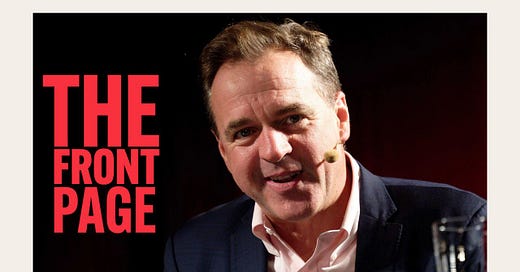




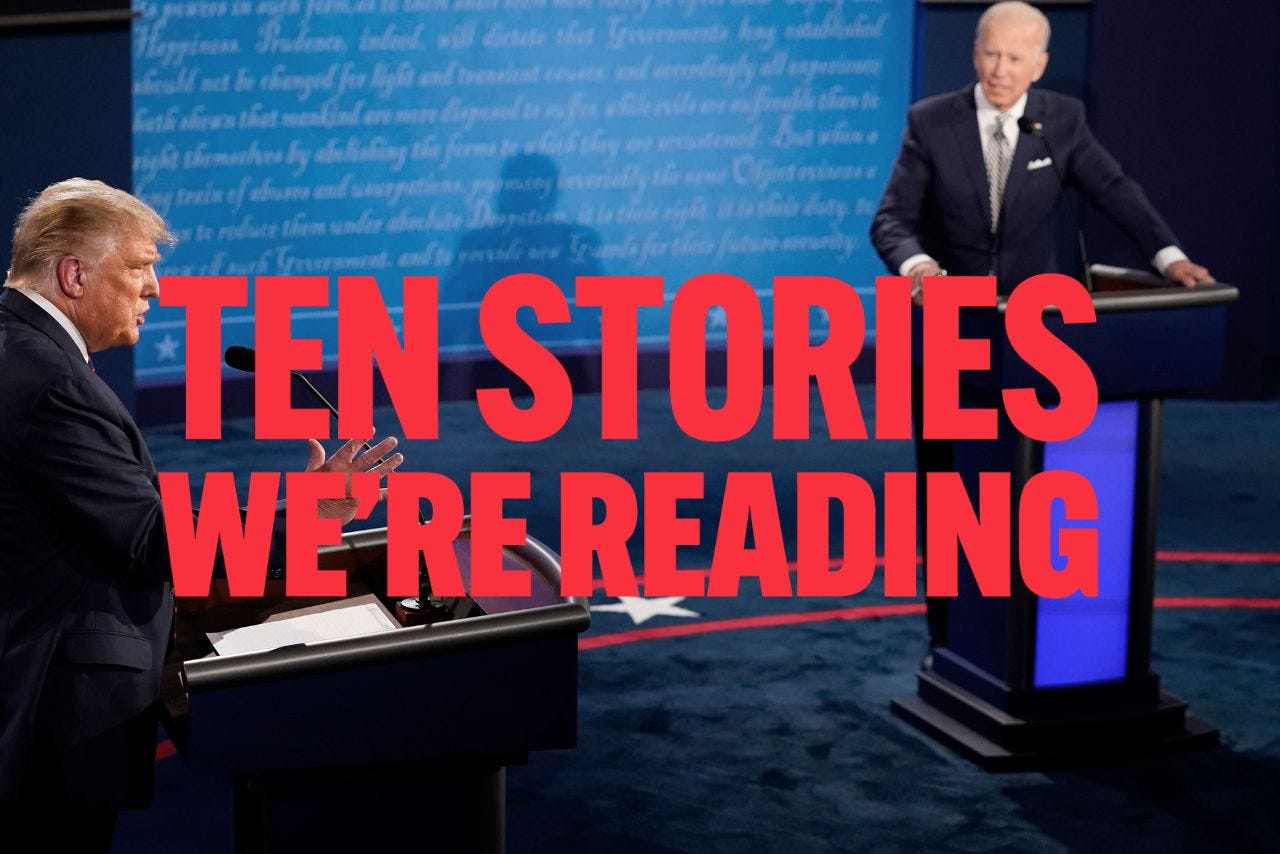


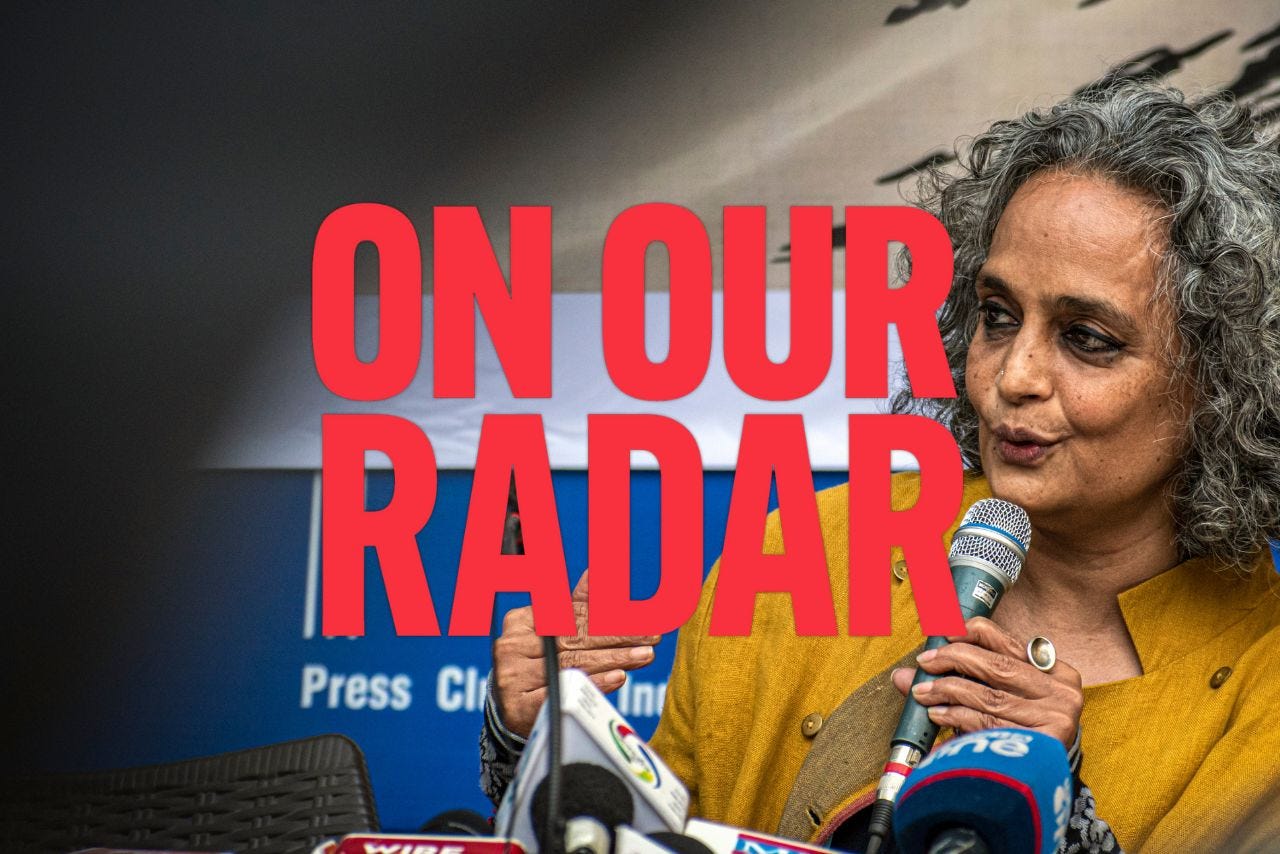




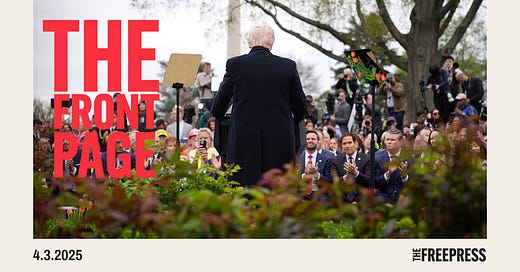

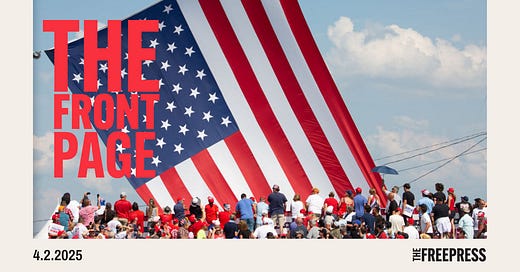

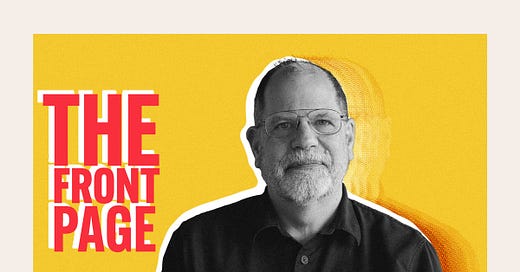



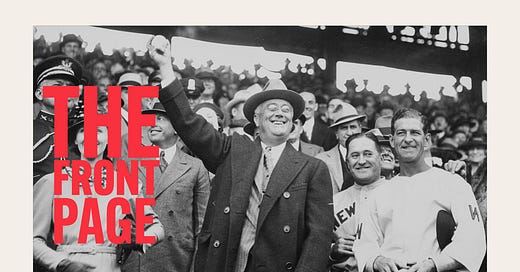
Remember when Democrats worked on legislation to protect whistleblowers who revealed COVID relief shenanigans in 2021? Neither do I.
If Gen Z is gonna get drafted to fight for our freedoms in foreign lands....we are FUCKED.
These kids need a three-day rest just to deal with pronouns they don't like--they need special counseling every time something happens in the news--we're going to send them to other countries to face people with real guns???
We are FUCKED.